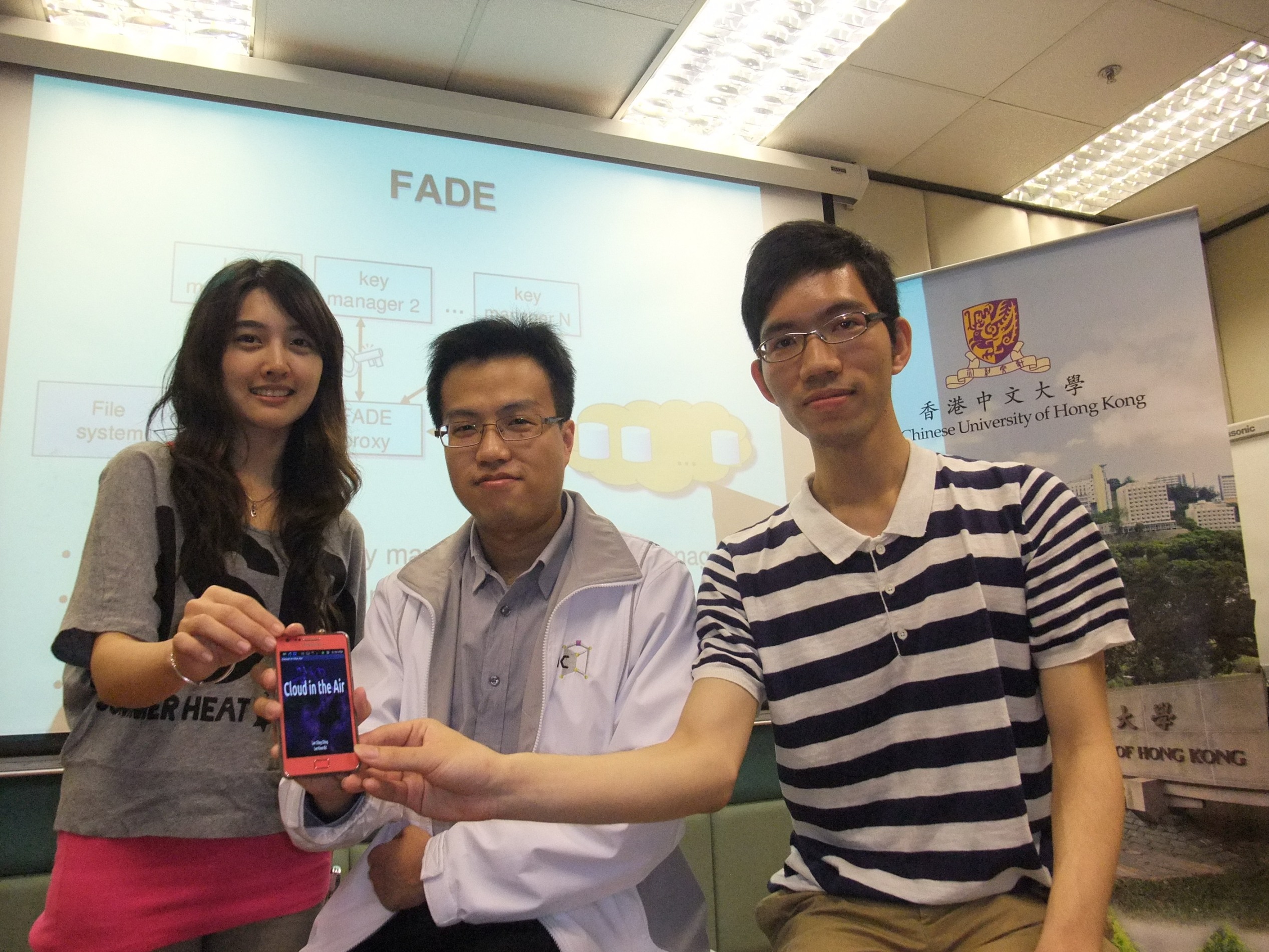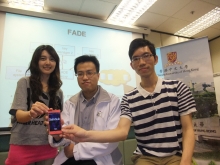CUHK
News Centre
CUHK Showcases New Technologies for Mobile Cloud Computing at International ICT ExpoEnhancing Encryption, Safety, Speed, Cost-efficiency and Reliability
To address the information security problems arising from the use of smart phones or tablet computers for accessing the internet and the cloud storage, Prof. Lee Pak-ching, Patrick, Assistant Professor, Department of Computer Science and Engineering at The Chinese University of Hong Kong (CUHK), has developed three innovative technologies for mobile cloud computing with many advantages, including encryption, safety, high speed, economy and reliability. These innovations will be showcased at the coming International ICT Expo 2012 at the Hong Kong Convention and Exhibition Centre, which runs from 13 to 16 April.
The prevalence of 3G network has allowed the public to gain access to the internet by using a smart phone or a tablet computer anytime and anywhere, and to use the cloud computing technology for cloud storage. However, there are concerns like information security, which should be solved as soon as possible in order to protect sensitive corporate data as well as personal information from being disclosed and stolen. Besides, given that it is not known whether telecommunications service providers will continue to provide unlimited 3G plans, the public should take measures to control the flow of data traffic efficiently, and to shorten the transmission time in order to save additional data charges.
The first technology developed by Professor Lee, ‘Secure Overlay Cloud Storage System, FADE’, is a practical proxy system that protects outsourced data by ensuring confidentiality, integrity, access control and assured deletion. FADE is also compatible with today’s cloud storage infrastructure, creating an unprecedented value-added security service to the emerging cloud storage technology.
Another technology applicable to data centres, ‘Live Deduplication File System, LiveDFS’, helps service providers to reduce the number of servers deployed and end-users to save the time and cost of data transmissions. It can save 90% of storage space in archiving storage servers by removing redundant data stored on the physical media. With LiveDFS, small and medium sized storage manufacturers can assemble their own deduplication-enabled storage servers, benefitting SMEs by reducing the number of servers deployed. It also helps save energy and protect the environment in the long run.
Professor Lee has also developed an Android-based mobile storage application that combines FADE and LiveDFS. It helps users of smart phones and tablet computers to ensure security when using cloud storage with FADE and save the amount of data transfer over the wireless communication between mobile devices.
Apart from ensuring information security of mobile cloud computing, saving cost and energy, and protecting our environment, CUHK is also concerned about the reliability of data storage. Professor Lee has thus developed the ‘Network-Coding-Based Multiple-Cloud Storage System, NCCloud’.
NCCloud is designed as a proxy-based storage system that interconnects multiple cloud storage nodes (e.g. Amazon S3, Azure, Rackspace). It uses network coding-based storage schemes to divide a file into different blocks and store the blocks over different cloud storage nodes. If a cloud storage site fails, the repair operation will (i) read data blocks from surviving clouds, (ii) regenerate the lost data blocks, and (iii) write the regenerated blocks to a new node. NCCloud can save the cost incurred in data migration over clouds, while maintaining the same fault tolerance as in existing storage schemes.
CUHK will showcase 14 technological projects at the coming International ICT Expo. Members of the public are welcome to visit the CUHK booth to learn about and try the Android-based mobile storage application.



